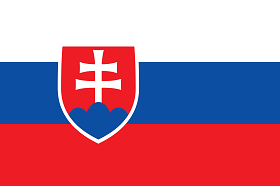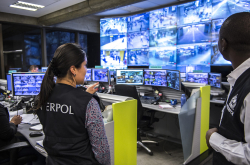 SLOVAKIA
SLOVAKIA
Fighting organized crime in Slovakia
Slovakia is a landlocked country in central Europe, sharing its borders with five countries. As such, it is becoming a targeted transit country for crime groups smuggling illicit merchandise between Asian and European markets.
The main transnational crime challenges in Slovakia include migrant smuggling, human trafficking, economic crime and drug trafficking.
The interconnected nature of all these crime areas makes the role of INTERPOL’s National Central Bureau (NCB) in Slovakia vital in maintaining law and order at regional and national levels.
INTERPOL in Slovakia
NCB Bratislava is a part of the Police Presidium’s Bureau of International Police Co-operation, which comprises INTERPOL and Europol as well as other units.
INTERPOL Bratislava’s staff can handle all enquiries received either from domestic or international police agencies, no matter the type of crime.
Main NCB tasks:
- Carrying on checks on people, identity documents, stolen motor vehicles, works of art and weapons;
- Carrying out extraditions;
- Identifying dead bodies;
- Checking fingerprints and DNA;
- Exchanging information on criminals;
- Providing training for regional and district police.
NCB Bratislava plays an important role in making INTERPOL’s databases accessible to national police and law enforcement agencies across the country. This global network is vital in boosting national security and fighting criminal activity in Slovakia.
Law enforcement in Slovakia
The Slovak police force is a part of the Ministry of Interior. It consists of the main police headquarters (Police Presidium), 8 regional police headquarters, 53 district police headquarters and several educational and specialized police institutions. Headquartered in the capital Bratislava, the Force is run by the Police President or Chief of Police, who answers to the Minister of the Interior.
The main tasks of the National Police Force include:
- Protecting life, health and security of people;
- Ensuring public safety and order;
- Investigating and preventing crime;
- Protecting property and state borders;
- Supervising road traffic security;
- Searching for persons and objects.









